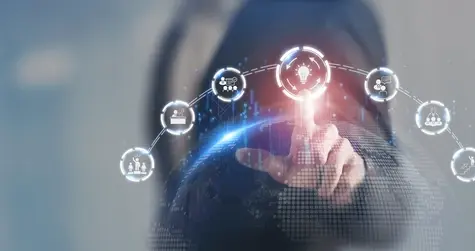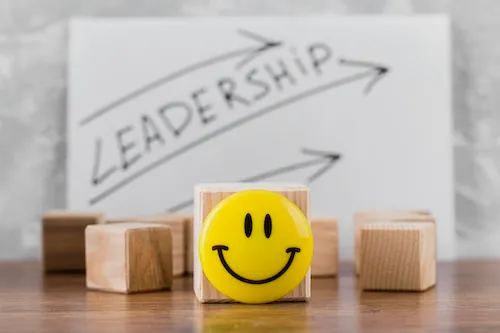Imagine this: It’s a crisp Monday morning, and though you may not realize it, you’re standing at the precipice of change. For months, you’ve felt stuck – in your job, your relationships, and your personal growth. The weight of unfulfilled potential sits heavy on your shoulders.
As you sip your coffee, scrolling through your phone, you stumble upon a health and wellness podcast that catches your eye. The topic? “The Ripple Effect of Self-Mastery.”
Intrigued, you press play. You feel a spark of recognition. They’re describing your exact situation – the frustration, the longing for something more.
But then, they paint a picture of possibility. They talk about how personal growth isn’t just about you; it’s about the impact you can have on your family, your workplace, your community. They describe a healthy lifestyle community where individuals support each other’s journeys towards self-mastery.
As you listen, something shifts inside you. You realize that your journey towards self-improvement isn’t selfish – it’s the first step towards making a real difference in the world around you. This is where your story of transformation begins.
At AlignUs, we believe in the power of personal growth and collective empowerment. It’s about connecting with like-minded individuals who share your desire for growth and supporting each other in achieving our full potential. Our platform offers a safe and supportive space for you to connect with others, share your struggles and successes, and learn from each other’s experiences.
But more than that, it’s about taking action towards creating positive change in your life and the lives of those around you. Whether you’re considering mental health coaching vs therapy or looking for a mental health platform to support your journey, this guide will help you understand the broader impact of your personal development.
The Ripple Effect of Self-Mastery: Personal Growth as a Catalyst for Societal Change
When you set out on a journey of self-mastery, you’re not just changing yourself – you’re setting in motion a series of positive changes that can transform your environment. This ripple effect starts with you but quickly expands to touch the lives of those around you.
Consider these scenarios:
As you work on managing your stress through mindfulness practices, you become more patient with your family members. Your home environment becomes calmer and more harmonious. Your children, witnessing this change, learn valuable emotional regulation skills that they carry into their schools and future workplaces.
At work, your improved self-awareness helps you communicate more effectively with your colleagues. Conflicts are resolved more easily, and team productivity increases. Your boss notices the positive change and implements a company-wide wellness program, further spreading the benefits of personal development.
In your community, your newfound confidence and sense of purpose lead you to volunteer for local causes. You inspire others to get involved, and gradually, your neighborhood becomes more engaged and connected.
This is the power of the ripple effect. Your personal growth journey, which might have started with a simple decision to try mental health coaching vs therapy, has now influenced dozens, if not hundreds, of lives.
Real-world examples abound of how individual self-mastery has driven broader social change.
Consider the impact of leaders like Mahatma Gandhi, whose personal philosophy of non-violence inspired a nation and influenced civil rights movements worldwide. His commitment to developing and embodying personal virtues such as truth, non-violence, and compassion had a ripple effect that transcended borders.
Closer to home, you may have seen the ripple effect in action through someone making an impact on your own community. Perhaps it was a teacher who encouraged you to reach for your dreams or a mentor who helped you discover your passion.
By investing in their own personal growth and leading by example, these individuals created positive change that extended far beyond their immediate surroundings.
The Role of Emotional Intelligence in Building Stronger Communities
Emotional Intelligence (EQ) is a crucial component of self-mastery, and its development can have a larger-than-expected impact on community well-being. Enhancing your EQ through personal growth work equips you to form deeper connections, resolve conflicts, and contribute to a more empathetic and cohesive community.
Imagine you’re part of a healthy lifestyle community where members are committed to developing their EQ. In this community, disagreements are handled with respect and understanding. People feel heard and valued, leading to stronger bonds and increased cooperation.
A powerful examples comes from schools that have implemented Social and Emotional Learning (SEL) programs. These programs – which focus on developing students’ EQ over just IQ – have been shown to improve academic performance, reduce bullying, enhance school climate, and better prepare students for future careers and citizenship.
By focusing on your own emotional intelligence as part of your self-mastery journey, you’re contributing to this broader movement towards more empathetic and resilient communities.
Mindfulness and Its Impact on Community Well-Being
Mindfulness – a key practice in many personal development journeys – has far-reaching benefits that extend well beyond the individual. As you cultivate mindfulness, you’re not only reducing your own stress and improving your mental health – you’re also contributing to a more present and engaged community.
Many health and wellness podcasts discuss the benefits of mindfulness, and for good reason. Research has shown that mindfulness practices can lead to reduced anxiety, improved focus, and increased compassion. When these benefits are multiplied across a community, the impact is significant.
The founding of Compassionate Louisville in 2012 highlights the role of mindfulness in shaping community values. A group of individuals spent several retreat days creating the mission, values, and vision of Compassionate Louisville, focusing on how they were living out these principles.
Through mindful awareness, they identified twelve core values that reflected the community. Their mission was to “champion and nurture the growth of compassion,” and their efforts laid the foundation for an ever-growing group of volunteers working toward a more compassionate city. Mindfulness was key to fostering both leadership and consensus.
By incorporating mindfulness into your self-mastery practice, you’re not only enhancing your own well-being but also contributing to a more mindful and resilient community.
Leadership Through Self-Mastery: Empowering Others to Reach Their Potential
As you progress on your journey of self-mastery, you may find yourself naturally stepping into leadership roles. This is because the skills and qualities developed through personal growth – such as self-awareness, empathy, and resilience – are the same qualities that make great leaders.
Leaders who have achieved a high level of self-mastery are uniquely positioned to inspire and empower others. They lead by example, showing others what’s possible when one commits to personal growth. They create environments where others feel safe to take risks, make mistakes, and grow.
Consider the case of Satya Nadella, CEO of Microsoft. His leadership style, deeply rooted in empathy and continuous learning (both key aspects of self-mastery), has transformed Microsoft’s culture.
Under his leadership, Microsoft moved away from a competitive, “know-it-all” culture to a “learn-it-all” culture that emphasizes growth and collaboration. This shift has not only improved employee satisfaction but has also driven innovation and financial success for the company.
By focusing on your own self-mastery, you’re not just preparing yourself for leadership roles – you’re developing the capacity to empower others and drive collective progress.
Creating a Culture of Growth: How Personal Development Fuels Collective Good
When individuals prioritize personal growth and self-mastery, it can lead to the creation of a culture that values continuous improvement, compassion, and innovation. This culture of growth can permeate organizations, educational institutions, and entire communities, enhancing collective well-being and driving social progress.
Imagine being part of a healthy lifestyle community where personal development is not just encouraged but celebrated. In this community, people share resources, support each other’s growth journeys, and collaborate on projects that benefit the whole community. This is not just a fantasy – such communities exist and are growing worldwide.
At AlignUs, we seek to be one of those communities – where individuals from all walks of life can come together and thrive. Our platform is designed to foster a culture of continuous improvement, compassion, and innovation. We believe that by creating such a culture, we can help individuals achieve their personal goals while also contributing to the betterment of society.
The Intersection of Mental Health and Community Well-being
As we discuss personal growth and community impact, it’s crucial to address the role of mental health. The journey of self-mastery often involves navigating mental health challenges and finding the right support. This is where understanding the difference between mental health coaching vs therapy becomes important.
Mental health coaching focuses on setting and achieving personal goals, developing coping strategies, and improving overall well-being. It’s forward-looking and action-oriented. Therapy, on the other hand, often deals with diagnosing and treating mental health conditions, processing past experiences, and healing emotional wounds.
Both approaches have their place in a personal growth journey, and both can contribute to community well-being. As individuals address their mental health needs – whether through coaching, therapy, or a combination of both – they become better equipped to contribute positively to their communities.
Many mental health platforms now offer resources for both coaching and therapy, recognizing that mental health exists on a continuum and that different approaches may be beneficial at different times. These platforms often foster online communities where individuals can support each other, further amplifying the positive impact of personal growth on community well-being.
Your Growth, Your Community, Your Impact
Let’s return to you – the individual at the start of this journey. Remember that Monday morning when you felt stuck and unfulfilled? Now, imagine a different scenario:
You’ve embarked on your self-mastery journey.
You’ve explored mental health coaching vs therapy, found a supportive healthy lifestyle community, and maybe even started listening to a health and wellness podcast.
You’ve worked on your emotional intelligence, practiced mindfulness, and gradually stepped into leadership roles in your personal and professional life.
Now, when you wake up on a Monday morning, you feel a sense of purpose and connection. You see the positive changes in your family dynamics, your workplace culture, and your community involvement. You realize that your personal growth journey has not only transformed your own life but has also touched the lives of countless others around you.
This is the power of self-mastery and personal growth. It starts with you, but it doesn’t end with you. Every step you take towards self-improvement sends ripples of positive change into the world around you.
So, as you continue on your path of personal development, remember this: You’re not just working on yourself. You’re contributing to a better, more compassionate, more resilient community. Your growth matters, not just for you, but for all of us.
Join AlignUs In Our Mission
Embrace your journey with us at AlignUs. Our community is continually building out resources and support to help you walk this journey with others who are also seeking growth and self-mastery.
Your path to self-mastery is unique, but its impact is universal. As you grow, you light the way for others to grow. As you heal, you contribute to the healing of your community. As you reach for your highest potential, you elevate those around you.
This is how personal growth becomes a force for collective good. This is how, one individual at a time, we create a better world for all. And it all starts with you.




